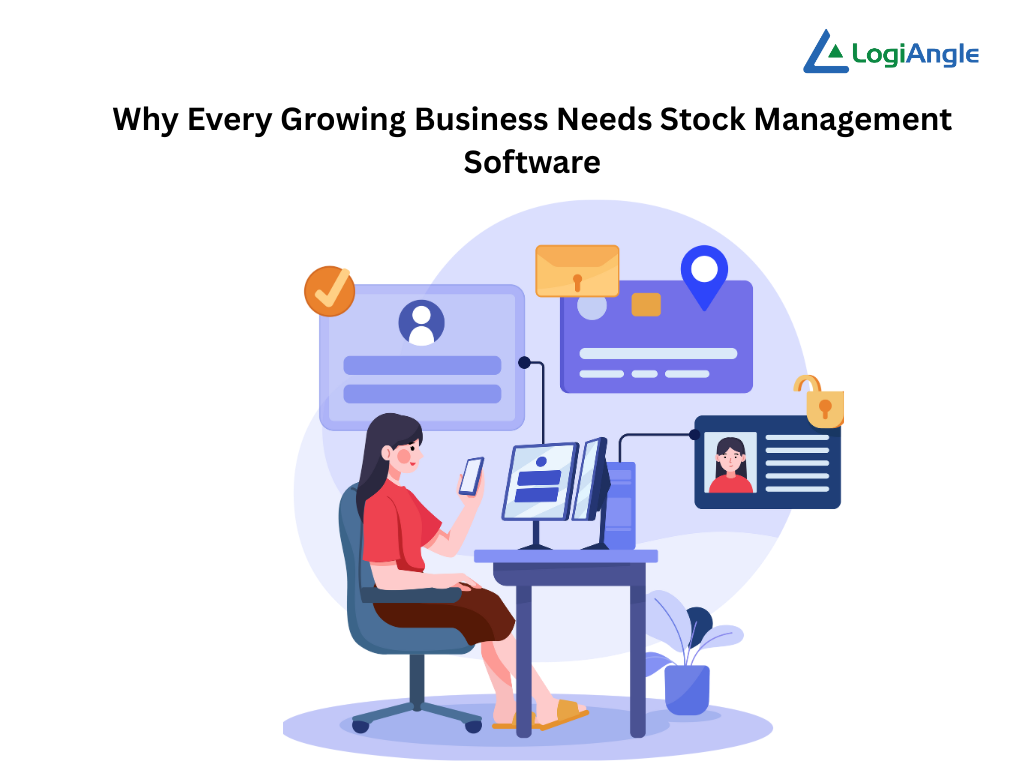
In today’s fast-paced business environment, growth brings both opportunities and challenges. As sales increase, customer demand rises, and operations expand, managing inventory becomes more complex than ever. Relying on spreadsheets, manual counts, or guesswork is no longer sufficient to maintain accuracy and efficiency.
This is where Stock Management Software becomes essential. By providing real-time inventory visibility, automating repetitive tasks, and offering actionable insights, it enables growing businesses to streamline operations, reduce waste, and boost profitability.
Whether you operate in retail, manufacturing, e-commerce, or wholesale, investing in Stock Management Software helps you stay ahead of the competition. From improving stock accuracy to optimizing order fulfillment and tracking performance metrics, it’s a crucial tool for long-term business success.
In this article, we’ll explore why every growing business should adopt Stock Management Software, its key benefits, essential features, and how it drives sustainable growth.
What is Stock Management Software?
Stock management software is a digital tool designed to monitor, track, and control inventory levels across one or multiple locations. It automates critical inventory processes such as:
- Tracking incoming and outgoing stock
- Managing product categories and SKUs
- Automating purchase orders and reorders
- Forecasting demand based on sales trends
- Generating inventory reports for better decision-making
This type of software is not limited to large enterprises—small and medium-sized businesses can benefit equally by saving time, avoiding costly errors, and ensuring that the right products are available at the right time.
The Growing Challenges of Manual Inventory Management
As a business expands, so does the complexity of managing its inventory. Common problems faced by growing businesses include:
- Stockouts: Losing sales because products are out of stock.
- Overstocking: Holding excess stock that ties up capital and takes up valuable storage space.
- Human Errors: Manual stock tracking increases the risk of miscounts, misplaced items, or incorrect data entry.
- Lack of Real-Time Data: Delays in updating stock levels can lead to poor decision-making.
- Difficulty in Multi-Location Management: Businesses with warehouses, stores, or distribution centers struggle to keep all inventory data synced.
These challenges can directly impact profitability, customer satisfaction, and growth potential.
Why Growing Businesses Should Invest in Stock Management Software
1. Real-Time Inventory Visibility
With stock management software, businesses can view accurate stock data instantly. Every sale, purchase, or return is updated in real time, ensuring that the team always knows what’s available. This helps in making quick decisions, preventing overselling, and keeping customers happy.
2. Reduced Stockouts and Overstocking
Balancing inventory is crucial. Too little stock means lost sales, while too much leads to wasted capital and storage costs. Stock management systems use automated alerts and demand forecasting to ensure you always have the right amount of stock.
3. Increased Efficiency and Accuracy
Manual data entry takes time and is prone to mistakes. Stock management software automates processes like barcode scanning, order tracking, and stock reconciliation, ensuring error-free and faster operations.
4. Better Cash Flow Management
Knowing exactly what’s in stock prevents unnecessary purchases and over-investment in low-selling products. This keeps cash flow healthy and allows funds to be used for other growth initiatives.
5. Enhanced Customer Experiencer
Today’s customers expect quick order fulfillment and accurate product availability. By ensuring products are always in stock and orders are processed quickly, stock management software directly contributes to higher customer satisfaction and repeat purchases.
6. Multi-Channel and Multi-Location Support
For businesses selling through physical stores, e-commerce platforms, and marketplaces, managing inventory across channels can be challenging. Stock management software syncs inventory across all platforms, preventing overselling and ensuring consistency.
Key Features to Look for in Stock Management Software
When selecting the best stock management software for your business, consider the following essential features:
- Real-Time Updates – Instant stock level adjustments with every transaction.
- Barcode & QR Code Integration – Faster and more accurate stock entry.
- Multi-Location Tracking – Manage inventory across warehouses, stores, or branches.
- Automated Reordering – Set reorder points to restock before you run out.
- Demand Forecasting – Predict future sales trends to prepare stock accordingly.
- Integration Capabilities – Connect with accounting, POS, and e-commerce platforms.
- Analytics & Reporting – Get detailed insights on best-selling items, slow movers, and seasonal trends.
Industry-Wise Benefits of Stock Management Software
For Retail Businesses
- Avoid running out of popular products during peak seasons.
- Keep track of slow-moving inventory to plan promotions.
- Integrate with POS systems for seamless sales tracking.
For E-Commerce Stores
- Sync inventory across platforms like Amazon, Shopify, and WooCommerce.
- Prevent overselling by automatically updating stock after each sale.
- Speed up order fulfillment for better customer reviews.
For Manufacturers
- Track raw material usage and finished goods in real time.
- Maintain optimal production schedules with accurate stock data.
- Reduce wastage through better inventory control.
Conclusion
For every growing business, stock management software is more than just an operational tool it’s a strategic investment. It helps businesses maintain the right stock levels, reduce wastage, improve cash flow, and provide better service to customers.
Whether you are a retailer, manufacturer, distributor, or e-commerce entrepreneur, the benefits of investing in an advanced inventory control system are clear. The sooner you adopt stock management software, the better positioned your business will be to scale efficiently and profitably.
